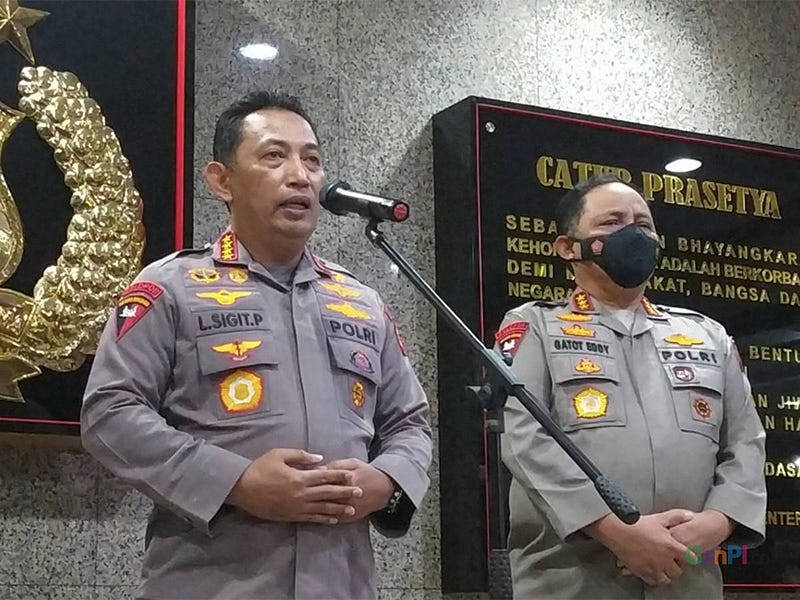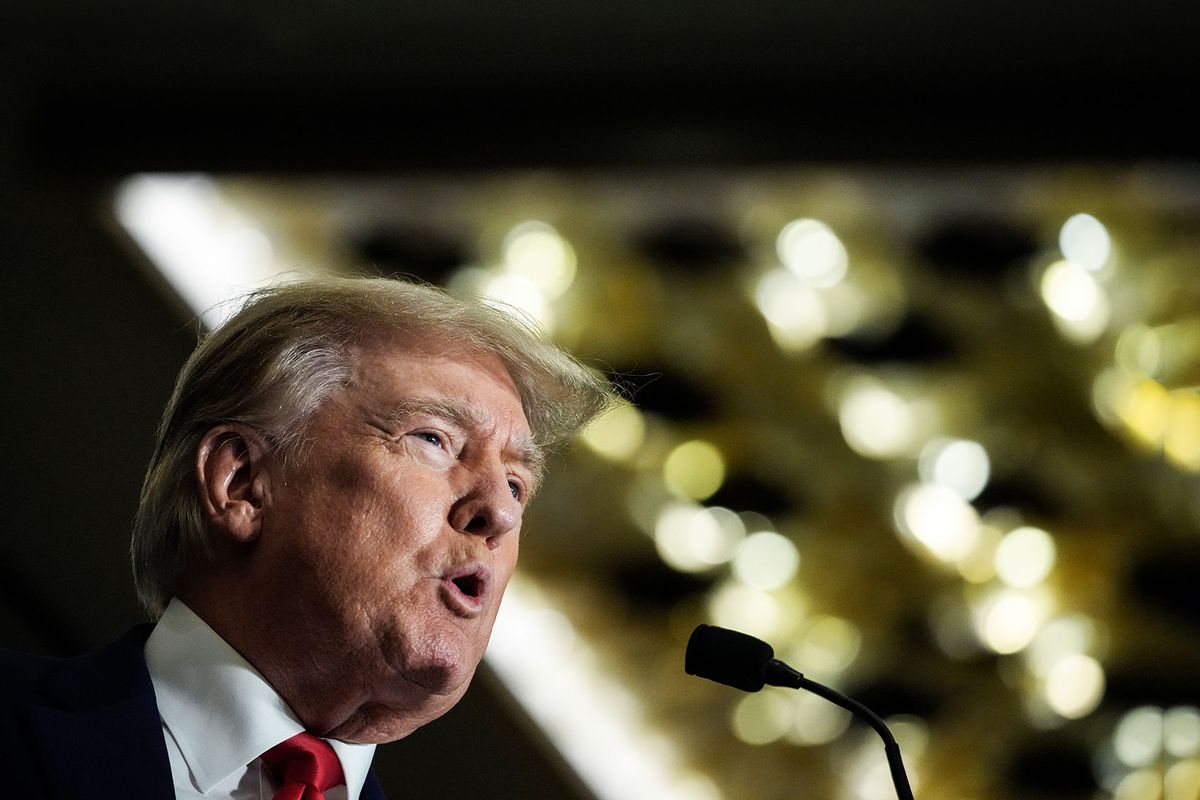The announcement by officials in Jakarta that one of the National Police’s most feared top officers has been arrested on suspicion of the revenge shooting of a subordinate who was believed to be having an affair with his wife is unprecedented in Indonesia. It also, human rights advocates and others hope, represents a watershed for one of Southeast Asia’s most corrupt and undisciplined forces.
Two-star General Inspector Ferdy Sambo, the notorious former chief of the internal affairs division, has been named as a suspect in the shooting of his driver, Brigadier Nofriansyah Yosua Hutabarat, who some reports say was involved romantically with Sambo’s wife, Putri Candrawati. Another version making the rounds is that Putri Candrawati confronted her husband over a suspected affair with a policewoman, only to be beaten by him, and that Yosua defended her and got shot for his intervention. Neither has been confirmed officially.
Although official reports originally said Yosua had attempted to assault the woman in her quarters, widespread rumors said the enraged Sambo, on having discovered the affair, allegedly ordered his bodyguard Bharada Richard Eliezer to shoot Yosua and fabricated a scenario as if a shootout had occurred between them.
Coordinating Minister for Political, Legal and Human Rights Mahfud MD said Sambo’s motives were “sensitive” and “may only be heard by adults.”
The shooting and its aftermath have riveted the Indonesian public, with the press going all out to report the details. As an indication of the seriousness with which it has been greeted, President Joko Widodo is said to have met with the National Police Chief General Listyo Sigit Prabowo face to face, alone, and told him to clean his house, citing the police Code of Ethics implemented some time ago, which has the force of law.
“The key thing is the Code of Ethics,” a source told Asia Sentinel. “Western diplomats played a major role pushing the Code as a way to tackle mega slime inside the coppers.”
Nothing like this has ever happened before, according to longtime observers in Jakarta, with a national police who have operated with almost complete impunity. As long ago as 2012, the International Crisis Group in a scalding report said that “cultural, structural, individual, financial and educational barriers within the institution hinder behavioral change. Applicants join the police to wield power and earn money, and once on the force, there are few incentives, financial or professional, to build rapport with the communities they are supposed to serve.”
Nothing has changed since. Most residents regard a visit from the police in time of emergency as an opportunity for a shakedown.
The pure notoriety of the shooting of Yosua, however, has pushed the affair into the public consciousness.
“This case has the potential at least to begin the process of establishing the rule of law in Indonesia,” said a western observer with extensive experience who asked not to be quoted because of the sensitive nature and the possibility of retaliation. “The police have been a hindrance to business and growth for decades. This scandal is very important in setting a tone of accountability. It is long overdue.”
That isn’t to say a real shakeup will produce a lasting effect on the police. This is Indonesia after all, one pessimist said. Corruption in the department is deep and endemic and not easily stamped out.
In a press conference, Listyo, the national police head, said that “Special team has named FS (Ferdy Sambo) as a suspect.” Listyo was accompanied by other high-ranking national police officers. The police, Listyo said, also determined that as many as 31 police officers had violated ethics in the investigation process including three police generals.
Other sources said previously that junior officers had been ordered to trample the murder scene, that the CCTV camera had disappeared and other attempts were made to obliterate evidence.
Listyo said the results of the special team’s investigation found that there was no shootout between Yosua and Eliezer, but rather the shooting was on Sambo’s orders. The driver appeared to have been tortured extensively before he was killed. Yosua’s family say that they were forbidden to open the coffin when the driver’s body was delivered to them. But later examination showed he appeared to have been stabbed and beaten, two of his fingers were broken, his shoulder was dislocated and scratches on his neck resembled the marks of a rope.
“There was no evidence of a shooting incident that was reported at the beginning (of the case). However, there was a shooting incident against [Yosua] that was carried out by[Eleazar] on the orders of the FS,” said Listyo.
To make it look as if a gunfight had taken place, Sambo apparently fired Yosua’s gun into the wall several times. The weapon that Eliezer used to shoot Yosua belonged to another policeman identified only by his initials as “RR,” who has now also been named a suspect.
Listyo said there were a total of four suspects so far, namely Sambo, RR, Eliezer and “KM” — Sambo’s subordinate who helped and witnessed the shooting. The four have been charged with premeditated murder with a maximum penalty of death, or life imprisonment, or a maximum sentence of 20 years in prison.
Before being named a suspect, Sambo was questioned for alleged violations of procedures in handling the crime scene, namely removing the CCTV at his official home where the shooting took place. Police said they were still investigating Sambo’s motive for ordering Eliezer to shoot Yosua, including by questioning Putri Candrawati.
Police said the shootout occurred after “Brigadier J”, or Yosua, sexually assaulted Sambo’s wife. However, the dad man’s family found many irregularities such as several cuts on his body and two broken fingers. In the midst of intense public pressure, the National Police formed a special team to investigate this case. A re-autopsy was performed. Around 25 personnel, including Sambo, were examined and removed from their positions.
Eliezer is currently being held at the Indonesian National Police’s Criminal Investigation Unit, where he has been placed in a special cell with tight security. After being named a suspect some time ago, he volunteered as a justice collaborator who offered to help the police uncover the real version of the incident. He is now under the protection of the Witness and Victim Protection Agency (LPSK).
Hamdard from the SETARA research institute said that amid declining public trust in the police institution, this has become the toughest test for the National Police Chief, and it seems that Listyo has passed.





















Discussion about this post